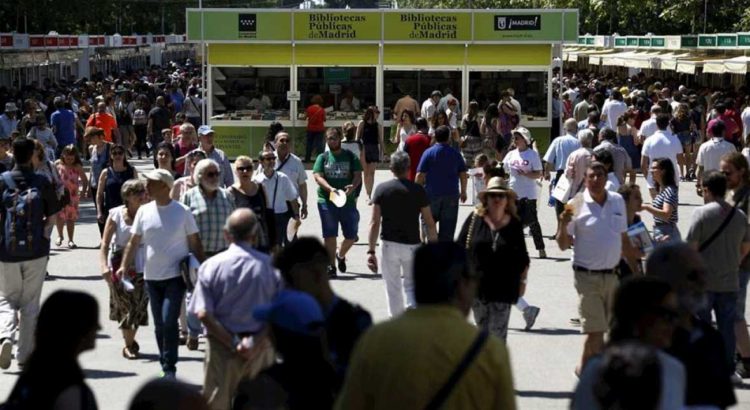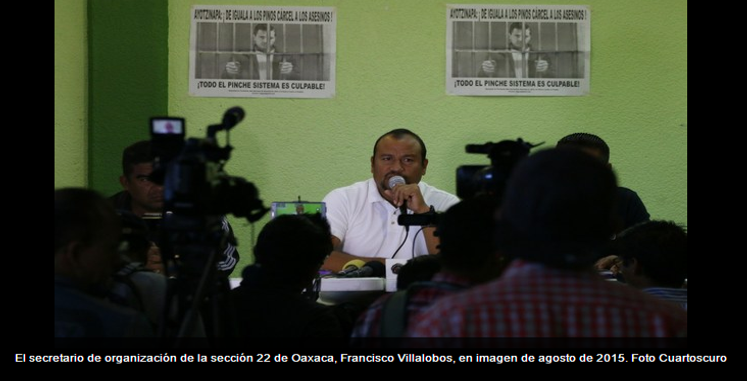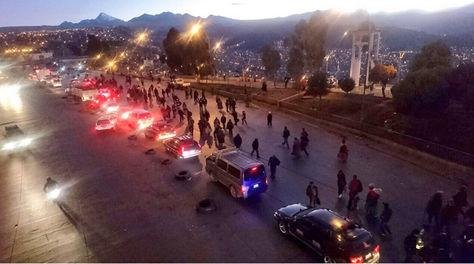España/14 de junio de 2016/Autor: EUROPA PRESS/ Fuente: http://www.rtve.es/
La Feria del Libro de Madrid cierra su septuagésima edición con unas ventas en torno a los 8,2 millones de euros, lo que supondría un incremento del 3,5% respecto a las cifras del año pasado.
Según ha informado la organización en un comunicado, este domingo de Feria Régis Debray ha presentado, en un diálogo con Alfonso Guerra, su libro Elogio de las fronteras. La conversación entre ambos destacados políticos clausura el programa de actividades desarrollado por Francia, país invitado de la Feria, durante la presente edición.
Amin Maalouf fue el encargado de inaugurar esta 75 edición el pasado 27 de mayo, que contaba con Francia como país invitado. El escritor libanés de lengua francesa dedicó su intervención a describir la desorientación del hombre contemporáneo, instalado en un «mundo globalizado que llega sin libro de instrucciones». El acto estuvo organizado por la Embajada de Francia, Alianza Editorial, que este año celebra su 50 aniversario, y Feria del Libro de Madrid.
La sesión inaugural a cargo del autor de Un sillón que mira al Sena fue también el primero de los actos del programa desarrollado por el Institut Français y la Embajada de Francia. Un programa que ha incluido una cincuentena de actividades alrededor de la literatura, el pensamiento, la ciencia y la trágica actualidad del conflicto sirio.
Conferencias literarias como la Jean Canavaggio sobre Cervantes y la de Jean NoÙl Jeanneney alrededor de Víctor Hugo o las presentaciones de las novedades de los novelistas Marc Lévy, Maylis de Kerangal o Virginie Despentes han redondeado un programa armado sobre figuras como el filósofo e historiador de la ciencia, Michel Serres; el astrofísico Jean-Pierre Luminet o el arabista Jean-Pierre Filiu.
También relacionada con la actualidad, la exposición ‘Caminos de exilio’, situada en el Paseo de Venezuela y que podrá visitarse hasta el 31 de agosto. Reflejo de los acontecimientos en el Mediterráneo, esta muestra fotográfica, inédita, colectiva e itinerante, dedicada a aquellos que se han visto en la necesidad y la obligación de abandonar sus hogares, reúne obras de cinco fotógrafos de reconocimiento internacional: Manu Brabo, Sima Diab, Olivier Jobard, Pierre Marsaut y Giorgos Moutafis, quienes mantuvieron durante su presentación un diálogo con el periodista Juan Cruz.
Otro de los ejes ha estado centrado en la difusión del francés con actividades orientadas tanto a niños como a adultos. Actividades infantiles de introducción al idioma a través del juego y talleres de diferentes niveles y para distintas edades de lengua francesa. El Pabellón Infantil de la Feria se ha convertido, asimismo, en una gran biblioteca de autores e ilustradores franceses, tanto clásicos como contemporáneos.
Dirigidos a profesionales del libro se han celebrado los encuentros El libro en España y Francia. Una lectura del sector del libro en ambos países en el que se han analizado, entre otras cuestiones, las políticas del libro, las ayudas a la edición y la traducción y la situación del libro infantil y juvenil.
La coincidencia de esta 75 edición de la Feria con la conmemoración del IV Centenario de la muerte del autor de El Quijote, ha hecho de la efeméride uno de los ejes centrales dentro y fuera del recinto de la Feria: una conferencia del hispanista Jean Canavaggio, la presentación de la obra poética de Cervantes a cargo de, entre otros, Luis Alberto de Cuenca, la proyección del documental sobre la búsqueda de los huesos realizado por Javier Balaguer, la obra teatral Cervantes en el Parnaso o la lectura continuada de textos cervantinos.
En esta Feria, que aspira a aunar «novedad y tradición», y a la que cada año se incorporan nuevas librerías y editoriales, lectores y escritores se han dado cita de nuevo. Más de 4.500 firmas anunciadas a lo largo de los diecisiete días y una de excepción: la de Rafael Sánchez Ferlosio. El veterano escritor, Premio Cervantes 2004, acudía este sábado, por primera vez, a firmar ejemplares de su obra.
La Feria, que se inauguró el pasado día 27 de mayo, ha contado con 367 casetas y 479 expositores (26 organismos oficiales, 10 distribuidores, 63 libreros especializados, 56 libreros generales, 177 editores de Madrid y 147 editores de fuera de Madrid).
Fuente de la Noticia:
http://www.rtve.es/noticias/20160612/feria-del-libro-madrid-cierra-incremento-ventas-del-35/1357656.shtml




















 Users Today : 19
Users Today : 19 Total Users : 35460710
Total Users : 35460710 Views Today : 39
Views Today : 39 Total views : 3419863
Total views : 3419863